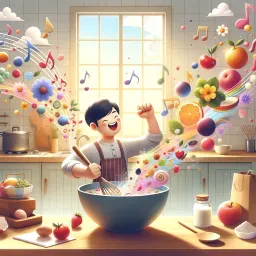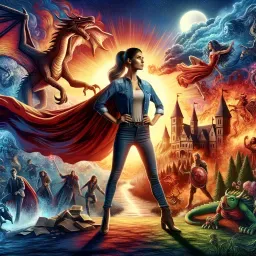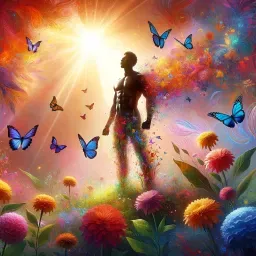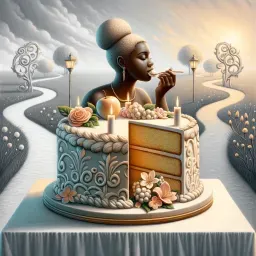”You’re braver than you believe,
stronger than you seem, and smarter than you think“

0
0
0
0
- Meaning
- The meaning of this phrase emphasizes the hidden strengths and capabilities that individuals may overlook in themselves. It resonates with psychological concepts of self-esteem and self-efficacy, suggesting that one's perception of their abilities often underestimates their actual potential. Philosophically, it aligns with humanistic psychology, which encourages the exploration of one’s inner strengths and the affirmation of personal worth. Historically, such affirmations have aided in personal development and resilience throughout various eras.
- Allegory
- The image features a person on a mountain peak, symbolizing achievement and overcoming challenges. The soaring eagle represents bravery and the pursuit of freedom, while the blooming tree signifies the strength and growth one can achieve through self-belief. The bright, uplifting colors create a sense of hope and positivity, perfectly aligning with the inspirational message of the phrase.
- Applicability
- This phrase can inspire individuals to face challenges by fostering a mindset of self-empowerment. In personal life, it encourages people to recognize their strengths and push through self-doubt, especially in situations that require courage or intellect, such as public speaking, job interviews, or pursuing a new venture.
- Impact
- This phrase has impacted popular culture by becoming a motivational mantra used in various self-help contexts. It encourages resilience and self-acceptance, making it a source of inspiration for many, especially in literature and psychological discussions surrounding child development, self-esteem, and personal growth.
- Historical Context
- While the exact historical context of this phrase is not documented as it doesn’t belong to a specific work, A.A. Milne published his first Winnie-the-Pooh stories in the 1920s. The era was marked by a burgeoning interest in childhood psychology and developmental education, reflecting a cultural shift toward understanding and nurturing children’s potential.
- Criticisms
- There have been criticisms that phrases like this may oversimplify complex emotional issues, implying that merely believing in oneself is sufficient for overcoming significant obstacles. Critics argue that while positive affirmations are beneficial, they should be accompanied by practical strategies and support.
- Variations
- Variations of this phrase exist in many cultures, often focusing on self-belief and the innate potential within individuals. For example, a common Eastern proverb teaches the importance of recognizing one's own strength and wisdom, suggesting that faith in oneself is universal.
-

Let it go.
-

It’s not the destination, it’s the journey.
-

I never look back, darling. It distracts from the now.
-

A spoonful of sugar helps the medicine go down.
-

I am Groot.
-

Second star to the right and straight on ‘til morning.
-

I’m a damsel, I’m in distress, I can handle this.
-

I’m not a prize to be won!
-

In every job that must be done, there is an element of fun.
-

You can't have your cake and eat it too.
No Comments